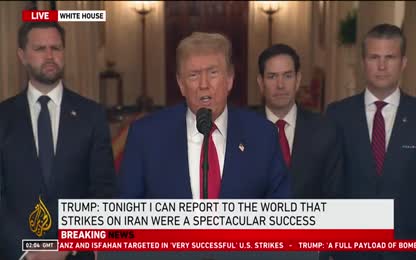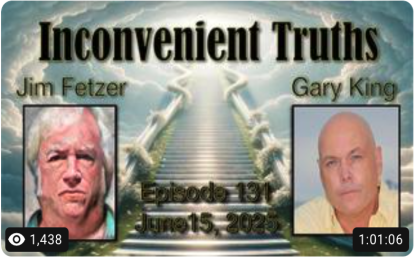Advertisement
National Socialism vs the New World Order & Globalisation - Hitler WW2
Some other sources of Truth:
- The Greatest Story Never Told, a documentary by Dennis Wise (can be watched free online at the TGSNT website, or you can buy the DVD)
- Hellstorm, a documentary by Kyle Hunt (can be watched on Bitchute and a DVD is available)
- Impartial Truth.com - website - online documentaries, articles and videos
Some Books:
The Myth of German Villainy, by Benton L Bradberry
Germany's War, by John Wear
Breaking the Spell, by Nick Kollerstrom
A History of Central Banking and the Enslavement of Mankind, by Stephen Mitford Goodson
Hellstorm, The Death of Nazi Germany, by Thomas Goodrich
Life in the Reich - by Mike Walsh
Hitler's Revolution - by Richard Tedor
Some Revisionists to search for online and some more websites:
David Irving - articles, lectures, and books
Ernst Zundel - videos and documentaries
Mark Weber - videos and articles
Leon Degrelle's - articles videos and books
https://holocaustdeprogrammingcourse.com/
http://holocausthandbooks.com/
https://justice4germans.wordpress.com/
- Category: Uncategorized,History/Historical Place/Build,Hitler / World War II,Revisionism
- Duration: 22:08
- Date: 2018-08-22 11:17:15
- Tags: hitler, adolf hitler, national socialism
1 Comments
Video Transcript:
Liberalism's deadliest enemy, Adolf Hitler transformed Germany into an authoritarian, socialist state advocating sovereignty of nations, advancement of labor, preservation of the European ethnic groups, and commerce based on exchange of wares to replace the international gold standard. Becoming Chancellor in 1933, he tackled his country's bankruptcy massive unemployment, communist subversion and foreign domination. His social economic programs and diplomacy restored German prosperity and independence within three years, despite determined opposition from Western democratic leaders. Richly intriguing and not without arousing a sense of awe, Germany exerted tremendous influence on our time. The antithesis of democratic values in a century witnessing the triumph of democracy, Germany went down fighting. The task of recording the history of the period is therefore largely in the hands of the country's former enemies. One of the flaws in their annals is the superficial assumption that national socialism was a rootless political program and the product of one man's worldview. There was in fact a conscious endeavor by the national socialist to align policies with German and European customs and practices. They believed their goals corresponded to the natural progression of their continent and found the diametrical Western democratic concept to be alien and immoral. In fact, national socialism was central Europe's answer to globalization and its dog of war democracy. During the first half of the 20th century, two world wars ultimately imposed democratic governments on European states that had been pursuing separate forms of politics. One of the most successful weapons in the arsenal of democracy was atrocity propaganda. It demonized the enemy, motivating allied armies and promoting their cause abroad. It justified the most ruthless means to destroy him. It defined the struggle as one of good versus evil, simplifying understanding for the populations of the United States and the British Commonwealth. The atrocities that allied propagandists attribute to Germany remain lavishly publicized to this day. Conducted more zealously by the entertainment industry than by historians, this is largely an emotional presentation with little or no factual content. Rather, it would be more useful for the authors of such legends to question, for example, why after the victorious allies established democratic governments throughout Europe in 1919, this state formed became practically extinct there in 20 years. Russia, Italy, Hungary, Poland, Lithuania, Austria, Germany, Greece, Spain, Slovakia and soon thereafter France adopted authoritarian regimes. Several of these countries closed ranks with Germany as Hitler gave viable popular political form to the growing resentment against liberalism and its culture breaking spirit. National socialism was not a spontaneous phenomenon that derailed Germany's evolution and led the country astray. It was a movement 200 years in the making, anchored deeply in the traditions and heritage of the German Volk and their fundamental requirements for life. Adolf Hitler gave tangible political expression to ideas nurtured by many of his countrymen that they considered complementary to their national character. Though his opposition party's popular support was mainly a reaction to universal economic distress, Hitler's coming to power was nonetheless a logical consequence of this German development. While American, European and Jewish financial interests continued to invest vast sums of capital into global communism and colonialism, in the west where industrially advanced societies existed, liberalism became the chief social mechanism for controlling mass populations. By breaking down cultural norms and thereby cultural health and integrity, the elites sought to undermine national spirit. By breaking the cohesiveness of European cultures, they sought an accelerated globalization process as a consequence. Hitler considered modern liberalism as a hijacking of European culture. Therefore he promoted Germany's self-sufficiency and independence, his party advocated the sovereignty of nations. While classical liberalism was the social mechanism by which the European people shared the feudal monarchial system that had ruled for centuries, its greatest legacy was making people conscious of their individual human rights. Although national socialist propagandists publicly acknowledged the contribution of liberalism, they warned that without controls the free reign of personal ambition would always lead to abuse. Inasmuch as liberalism was once of service in promoting the value of individual initiative and qualities of leadership, its ideals of freedom and personality have degenerated into the concept of downright arbitrary conduct in personal life, but even more so in economic and commercial life, so said Dr. Theo Reem. Hitler argued that the absence of sufficient state controls in a democracy enabled the wealthy class to manipulate the economy, the press and elected officials for its own gain. In other words, there was practically no responsibility built into democracies. The anonymity of the majority of the moment decided. Government ministers were subject to it, but there was no opportunity to hold this majority responsible. As a result, the doors open to political carelessness and negligence, to corruption and fiscal mismanagement. Cruption in America had spread so much according to him that no American citizen got upset anymore over incidents of shameless corruption and civil service because mismanagement was regarded as a natural phenomenon of the government itself. Democracy had failed because it was a product of liberalism. To overcome the liberal ideal, which for many was freed and personified, he introduced an alternative state form. It created opportunities for self-development but also instructed Germans in obedience. In so doing, Hitler eventually achieved the parody between individual liberty and state obligation long contemplated by the German intellectual movements of the previous century. National socialism was diametrically opposed to Marxism as it emphasized national pride while still promoting individualism. Property ownership was a human right and German hierarchical systems based on ability were simply not part of Marxist doctrine. The incompatible nature of these philosophical systems would eventually draw a Germany into a war with the global financial forces. As it would become gradually clear to Hitler that the two largest liberal democracies in the West, namely England and the USA, were financing the industrialization of the Soviet Union. This he rightly understood meant a military buildup that would eventually be unleashed upon Germany's eastern flank at some point in the future. As a side note, Hitler served in the Bavarian army during the First World War, where he fought at the battles of Ip, the Psalm, Aras, and Passiondale, earning the Iron Cross First Class, the Iron Cross Second Class, the wounded badge, the Cross of Honor, the Bavarian Cross of Military Merit, the Third Class with Swords amongst others. In other words, he understood war. In order to understand the physical crisis which Hitler inherited, we must go back to 1914. Germany's financial troubles began on the first day of World War I, when the Western Central Bank simultaneously took her off of the international gold standard. At the time, much of Germany's gold was stored in foreign nations as a way of doing trade, foreign banking, and international investing. This blow ensured that by 1918 the German goldmark would be worthless and Germany would be guaranteed to lose the war. After 1918, the deliberately weakened Reichmark was susceptible to volatility and hyperinflation. With the DAW's plan enforced under 1924, the foreign central banks made an attempt to make the Reichbank independent of German government, so that international interest could control its money supply. This led to massive overdrafts and the financial crisis of 1931, which bankrupted the country utterly. When Hitler, Hallmar shocked and faltered the funk, reestablished government control of the Reichbank via a law passed in the Reichstag in 1937. All foreign control of German affairs was eliminated, but World War II was also made inevitable. The 1918-1919 post-war naval blockade starved Germany into taking terms at Versailles. They lost 60% of their industry. Their foreign holdings and colonies were stolen by international brokers. Its gold reserves disappeared and large tracts of its lands were incorporated into surrounding countries. This taught Germany that alien and foreign interests could not be trusted. Hitler's idea to circumvent the dependence on these interest groups was Otharchy or Self-Sufficiency. Germany would do for itself whenever it could and trade only if the benefits were great enough, similar in some aspects to the Spartan economy of old. Two days after becoming Chancellor, Hitler outlined his economic program in international radio address. Quote within four years, the German farmer must be rescued from poverty within four years unemployment must be finally overcome. End quote. The government enacted laws based on the strategy conceived by Fritz Reinhart, a state secretary in the Reichist Ministry of Finance. This unassuming pragmatic economist introduced a national program to create jobs on the premise that it is better to pay people to work than to award them jobless benefits. The labor procurement law of June the 1st 1933 allotted one billion Reichmarks to finance construction projects nationwide. It focused on repair or remodeling of public buildings, business structures, residential housing and farms, construction of subdivisions and farming communities, regulating waterways and building gas and electrical works. Men who had been out of work the longest or who were fathers of large families received preference and hiring. None were allowed to work more than 40 hours a week and the law stipulated that German construction materials must be used. Also past that summer, the building repair law provided an additional 500 million Reichmarks for smaller individual projects. Homeowners received a grant covering 20% of the cost of each project, including repairs and additions. Owners of commercial establishments became eligible for grants for conducting renovations, plus for installing elevators or ventilation systems. Renters could apply for grants to upgrade apartments. Under the law's provisions, property owners receiving grants borrowed the balance of new construction costs from local banks or savings and loans. The government provided borrowers coupons to reimburse them for the interest on the loans. The tax relief law of September 21st 1933 offered income and corporate tax credits for repairs. The regime covered nearly 40% of the cost for each renovation. The company refinancing law legislated the same day, converted short-term loans into long-term ones with lower interest. The law reduced the previous 7% interest rate to 4, ultimately to 3%. This did not hamper finance companies since it prevented defaults on loans. The refinancing law released businesses from the obligation to pay their portion of unemployment benefits to former associates. The resulting available capital enabled them to rehire employees and expand production. The labor procurement law provided newlywed loans of 1,000 Reichmarks at 1% monthly interest. The loans came in the form of coupons to buy furniture, household appliances and clothing. To be eligible, the bride had to have been employed for at least 6 months during the previous two years and had to agree to leave her job. Returning women to the home vacated positions in commerce and industry, creating openings for unemployed men. For each child born to a couple, the government reduced the loan by 25% and deferred payments on the balance for one year. For larger families upon birth of the fourth child, the state forgave the loan. It financed the program by imposing surtaxes on single men and women. By June 1936, the government approved 750,000 marriage loans. Reinhardt described the policy of diverting women into the household economy as steadily regrouping our German women with regard to the labor market and with respect to social policy. This regrouping alone will, in a few years, be sufficient to eliminate unemployment and bring about an enormous impetus in every branch of German economic life. The marriage law released approximately 20,000 women per month from the workforce after September 1933. The increase in newlyweds created a corresponding need for additional housing. More tradesmen found work in new home construction. In the furniture industry, manufacturing increased by 50% during 33 alone. Factories producing stows and other kitchen appliances could not keep pace with consumer demand. The state imposed no property tax on young couples purchasing small single-family homes. As Reinhardt predicted, reduced payments and jobless benefits and increased revenues through corporate income and sales taxes largely offset the enormous cost of the program, to reduce unemployment and revive the economy. The Reich also focused on relieving the distress circumstances facing the German farmer. The Depression had left many farms in debt. Younger family members often left their homes to seek opportunity in the cities. A September 1933 law established the Reich food producers, an organization to promote the interests of people in the Greerian economy, fishermen, and gardeners. With 17 million members, the principal objectives were to curtail the gradual dying out of farms in Germany and prevent migration of rural folk to concentrated population centers. Controlling the market value of foodstuffs, the organization gradually raised the purchase price of groceries by over 10% by 1938. This measure was not popular among the public, but it ensured that Germany now created and controlled its own food supply. Germany's economic reforms can never have been so successful without overhauling the tax structure. In the Weimar Republic, state and local governments had raised revenue for operating expenses, reparation payments to the Entente, and public aid through steadily increasing taxation. The drain on working families' budgets had reduced purchasing power, restricted the demand for consumer goods, decreased production, and caused layoffs. As more people lost jobs, unemployment payouts were augmented. This meant placing greater demands on those still on the workforce. Municipalities collected taxes and fees according to local needs, without a nationally coordinated revenue system. Costly, inefficient, and overlapping bureaucracies burdened citizen and economy alike. Tax reform was a major element of Reinhardt's recovery program. Initial measures legislated to this end demonstrate what a crippling influence the righteous runaway taxation had previously exercised on commerce. The first to benefit from tax relief was Germany's automotive industry. The motor vehicle tax law of April 1933 abolished at one stroke all operating taxes and fees for privately purchased cars and motorcycles licensed after March 31st of that year. The reduction in consumer cost to own an operated car was so dramatic that it's to significantly boost sales. While the industry produced just 43,000 passenger vehicles in 1932, the number doubled during Hitler's first year in office. New car production increased annually. The number of people employed in Automobile manufactured climbed and in less than four years from 1933 to 1937, the industry built 15 more assembly plants. The government recovered the revenue loss from repealed automotive taxes through reduced payments of jobless benefits, income tax from newly employed auto workers, highway tolls, and corporate tax. The state collected an additional 50 million rash marks by offering owners of older cars the opportunity to pay a one-time reduced fee to permanently eliminate their annual vehicle tax liability. The government devoted the entire amount to improving roads thereby hiring more people for pavement and bridge repair, others found working industries that manufactured machinery. The tax law ratified on June 1st of 1933, eliminated fees for the replacement and purchase of tools in machinery, as long as buyers opted for German-made articles. This measured breathed life back into industry equipment production. In the long run, Germany's policy of reducing taxes to promote commerce increased public revenues. In a Nuremberg speech in 1936, Reinhardt described income tax as the main source of revenue, income tax is measured according to the citizens' actual income, and is therefore the most socially just form of collecting tax. A 1933 Swedish study comparing taxation among great powers established that the German people paid 23% of their income in taxes. In the US, the amount was 24%, in Norway 25, Britain 25, and Italy 31%. This figure did not take into account America's numerous hidden taxes that were nonexistent in Germany. No program to restore German prosperity could emit international trade. Deprived of its colonies, the Reich had to develop foreign markets to acquire raw materials for industry and a portion of the food supply. With gold reserves exhausted, the National Socialist Administration had to create alternative source of purchasing power. Despite objections from Hallmark Shop, President of the Reichbank, Hitler withdrew Germany's money system from the gold standard. Gold was the recognized medium of exchange for international commerce. Over centuries, it had become a commodity as well. Finance here has bought and sold gold, speculated on its fluctuations in price, and loaned it abroad at high interest. Hitler substituted a direct border system in foreign dealings. German currency became defined as measuring units of human productivity. The British general, JFC, fuller observed, Germany has already begun to operate more on the concept of labor than on the concept of money. In January 1938, the Soviet diplomat, Christian Rekovsky commented on the German money system. Rekovsky had held posts in London and in Paris and was acquainted with Wall Street financiers. He explained, Hitler, this uneducated ordinary man, as out of natural intuition and even despite the opposition of the technician, shocked, created an especially dangerous economic system. An illiterate in every theory of economics driven only by necessity, he has cut out international as well as high private finance. Hitler possesses almost no gold, and so he can't endeavor to make it a basis for currency. Since the only available collateral for his money is the technical aptitude and great industriousness of the German people, technology and hard work have become his gold. Germany's withdrawal from the gold-based, internationally linked monetary system, in favor of a medium of exchange, founded on domestic productivity, corresponded to Hitler's belief in maintaining the sovereignty of nations. This was an unwelcome development in London and Paris in New York, where cosmopolitan investment and banking institutions profited from loaning money to foreign countries. Germany no longer had to borrow in order to trade on the world market. Foreign demand for German goods correspondingly created more jobs within the Reich. With these economic policies in place, coupled with his focus on nativeist traditional culture, as the core value system of the German nation, Hitler became a globalist's nightmare. The rapid turnaround of Germany's economy, the positive outlook of a young thriving generation, and the utter disdain for progressive liberalism and media-run democracy, all but guaranteed an international assault on the Fatherland. Despite the Havar Agreement and many other attempts to placate observers abroad, Hitler's coup was answered in the heaviest way possible, when in which the German people were made to suffer greatly. Even now, they face extermination from the abstract guilt placed upon them by the victors, that very same group the German struggle to throw off. We can now only watch in horror as this nation slowly drowns.











 Donate
Donate







